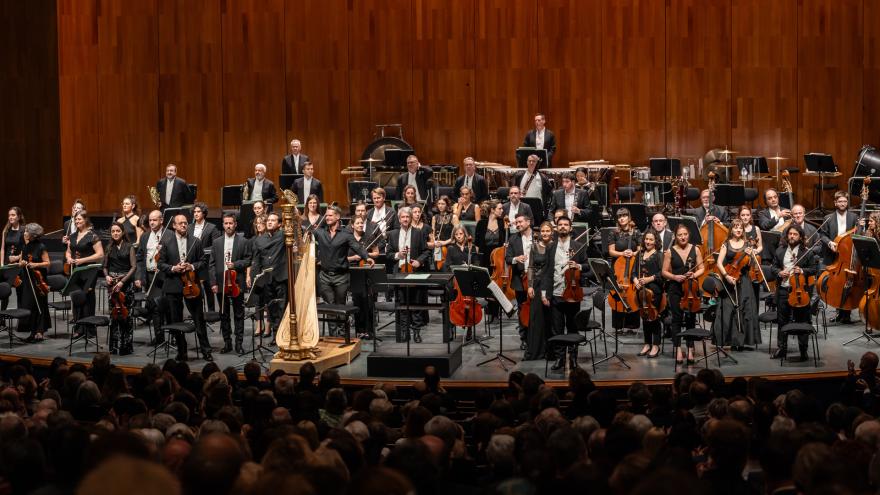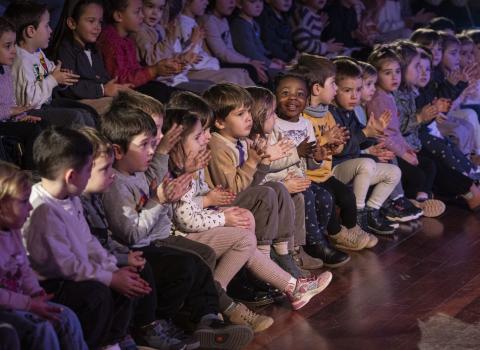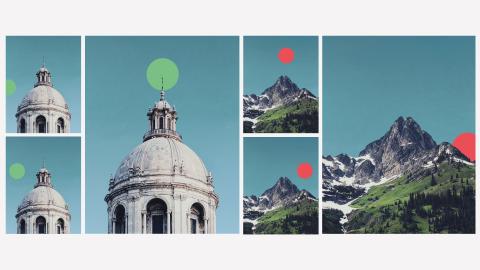Salzburg is wowed by the Basque National Orchestra's 'Bolero'

Ravel's 'Bolero' was one of the main highlights of the Basque National Orchestra's performance during the Salzburg City Season, and expectations were high, but it was impossible to imagine such an overwhelming response from the audience, which virtually filled the hall for both concerts held in the city so far.
Today brings the orchestra's successful Austrian tour to a close with a third and final concert in Salzburg, which has also sold out.
Following an initial concert at the Brucknerhaus in Linz and two more at the Grosses Festspielhaus in Salzburg, the Basque National Orchestra will today bring its successful tour of Austria to a close with a final concert in the great hall in Mozart's hometown.
There was a feeling of great success on the first day in Salzburg with Reinhold Glière's Harp Concerto in the magical hands of French soloist Xavier de Maistre and Dmitri Shostakovich's Tenth. But yesterday, February 8th, success was evident when the Basque National Orchestra and its conductor Robert Treviño focused on Ravel as the highlight of its programme. The last two recordings devoted to the Ziburu composer are renowned for their great success all around the world. The secret: presenting Ravel through his own eyes, his most Basque vision. Following Bizet's first suite from Carmen and a commanding version of Alberto Ginastera's Harp Concerto by Maistre in the first section of the concert, the Basque National Orchestra and Treviño played The Jester's Aubade, Spanish Rhapsody and Pavane for a Dead Princess in Salzburg's Grosses Festspielhaus until they reached the popular and universally acclaimed Boléro. And at this point the orchestra pulled out all the stops, responding to Ravel's whims and integrating the various instrumental families in the crescendo that the composition sets.
An enormous ovation roared through the hall for various minutes, much to the delight of the programmer, Thomas Heissbauer, who did not hesitate to point out that, "this reaction from such a select audience is by no means typical", and at the same time confirmed, "the importance and desire to bring other cultures and lesser-known orchestras to the city, who show what excellent musicians they are and who are excellent ambassadors for their countries". Andoni Iturbe, Vice-Minister of Culture of the Basque Government, who attended the first two concerts in Salzburg, made a similar statement: "I am extremely proud to be Basque and that you are representing the Basque Country", he said to the entire orchestra during their afternoon rehearsal, "it is very moving; you are proving to be wonderful cultural ambassadors".
Robert Treviño and Oriol Roch were congratulated by the audience, who were also intrigued by Amorosa from the Ten Basque Melodies by Jesús Guridi, which the orchestra performed as an encore, together with Brahm's Hungarian Dance No. 5 and Gerónimo Giménez' Intermediate from Luis Alonso's Wedding.
On the banks of the Danube in Linz
The Brucknerhaus in Linz hosted the concert that marked the beginning of the Austrian tour on Tuesday, February 6th. Linz is Bruckner's homeland and also a place with a long musical tradition. Its concert hall has some of the best acoustics in Europe and here, on the banks of the Danube, an extensive collection of Ravel works was also performed, as well as Ginastera's Harp Concerto, once again in the hands of the French harpist Xavier de Maistre, a wonderful companion on this tour.
In Salzburg, with Mozart's permission
Today the Basque National Orchestra will repeat its programme in Salzburg, performing Ravel's Bolero as the centrepiece. And with this, it will bring to a close a top-tier and extremely ambitious international tour, once again vindicated by its musicians, who have travelled to this city with the dignity and respect required to perform in one of the most important venues for classical music. It is no secret that Salzburg combines a number of magnificent qualities that make it one of the most renowned cities in the world when it comes to art and culture. It is the birthplace of Wolfgang Amadeus Mozart, one of the most influential and distinguished musicians in history, and home to one of the most popular and important classical music festivals in the world. This festival is held at the Grosses Festspielhaus (Great Festival Hall), which is set against the stunning Mönchsberg mountainside and boasts one of the largest stage boxes in the world at a width of 100 metres. The city rounds off its credentials by being listed as a World Cultural Heritage Site.
And a Basque tree in the Austrian woodland
The Grosses Festspielhaus holds 2,200 people. Combining the three performances, more than six thousand people will have experienced the Basque National Orchestra during this visit to Salzburg (approximately seven thousand if the audience in Linz is also included). A third of the audience comes from the city itself, another third from the region and the last third from Germany, a neighbouring country that jumps at the chance to come to the concerts in Salzburg. Tickets cost up to €99.
Interestingly, the artists are not gifted with flowers after their performance; from this season, and as a memento of their time in Salzburg, each artist or orchestra will have their name carved on a tree, as part of a plan for reforestation and conservation of the Austrian woodland.
Euskadi Basque Country / Baskenland
The Euskadi Basque Country brand has been part of these concerts in its German version, Baskenland. The Basque Tourism Agency has joined this tour to promote and establish Euskadi as a quality cultural asset, in this case by means of the Basque National Orchestra.
Concerts & Tickets February
















